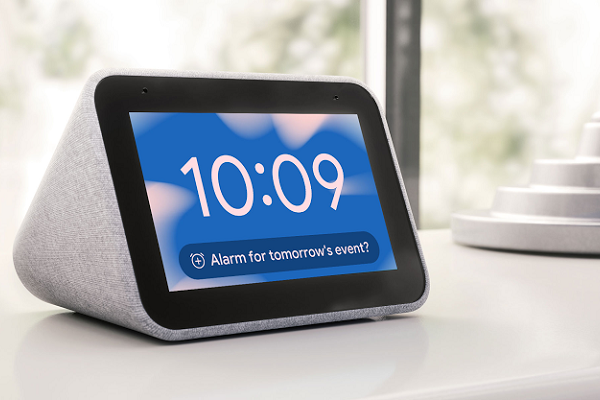Google Assistant Tests Skipping Wake Word for Snoozing Alarms and Other Voice Commands on Android
 Hitting snooze on alarms or answering calls on Android devices with Google Assistant won’t need a wake word to activate Google Assistant, according to a 9to5 Google report. Google has started testing a setting call Guacamole that will let users simply say “stop” or “answer call” without saying “Hey, Google,” a feature that’s been available for a couple of years on Google Nest smart speakers and displays.
Hitting snooze on alarms or answering calls on Android devices with Google Assistant won’t need a wake word to activate Google Assistant, according to a 9to5 Google report. Google has started testing a setting call Guacamole that will let users simply say “stop” or “answer call” without saying “Hey, Google,” a feature that’s been available for a couple of years on Google Nest smart speakers and displays.
Guac Talk
The new feature gives Google Assistant new words to listen to besides Hey Google. The new command shortcuts are limited to alarms and phone calls and appropriate actions for them. It’s easy to imagine the same principle applied to other reactive Google Assistant notifications, though. The Guacamole feature is likely to be officially announced at the Google I/O developer conference on May 18, much like how the feature for Nest devices was unveiled at the event a couple of years ago. Why there was a two-year gap in bringing the feature to Android or what led to the decision to implement it now hasn’t been revealed, but the voice shortcuts do give more of a smart speaker kind of operation to the mobile devices.
It shares some similarities with the Continued Conversation feature for Google Assistant that Nest smart displays added to enable making additional requests without having to say the wake word phrase after each command. The feature has been part of Android and smart speakers since the summer of 2018, extending to smart displays in 2019. The new responses, like the Continued Conversations, make for more natural interactions with Google Assistant, responding to the AI like a human being without the command a the beginning that’s usually required.
Energy Ears
The other notable aspect of the Guacamole commands is that it all happens on the device, with no need to use the cloud. That’s important since adding to the list of words Google Assistant has to listen for means using more energy and requiring more frequent battery charging. Keeping the whole process on the device also reduces potential privacy infringement in the case of accidental awakenings. There have been plenty of instances where Google Assistant activated when it detected someone saying Hey, Google, even if no one had. More words that awaken the voice assistant should theoretically only make that event more likely.
Follow @voicebotai Follow @erichschwartz
Google Assistant Based Smart Displays Now Enable Continued Conversation
Xiaomi Voice Assistant Adds Continuous Dialogue and Phone Answering Service
Google Admits Some Smart Speakers Mistakenly Recorded People Without Wake Word Activation








